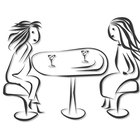Some people go through life with apparent ease while their peers with access to similar resources struggle. Life skills such as critical and creative thinking, decision-making, communication and interpersonal relations make a big difference to the success a person achieves. Of all these skills, those that equip a person to fit into a social structure are known as soft skills.
Reading, Writing and Math Skills
The ability to read, write and use numbers is one of the most vital life skills. Reading means the ability to recognize words, know their meanings, and understand the context of things. Writing using pen and paper or keying in information into a computer is an important part of routine life. When you need to purchase something, use a recipe, balance the checkbook or invest money, you need math skills to complete the task.
Critical Thinking Skills
Given a task to perform, you need to collect information, and more importantly, identify that which holds the greatest significance. In any given situation, you need the ability to come up with several options and evaluate their relative value to make the right decisions. You need to plan for action, execute the plan and monitor the outcomes to learn lessons for the next time. All these are components of the ability to think critically.
Interpersonal Skills
Daily life involves interaction with other people, and the nature of these interactions is an important factor that determines a person’s success and happiness at home as well as in the workplace. To get along with others, you need the ability to recognize them as individuals and value their perspectives, but at the same time, not allow them to trample over you and crush your identity. Strong interpersonal skills imply the ability to interact with confidence, work as a team, assert without violating others’ rights and manage conflicts effectively.
Communication Skills
An important component of interaction with others is the ability to communicate and build a rapport. Communication is not just about speaking with clarity; it is also—and often more—about listening, understanding body language and negotiating to find the best solution. Good communication skills also imply the competency to share your feelings and express your opinions even as you empathize with others and respect their right to disagree. Although soft skills receive greater focus at the workplace, they are equally important for healthy relationships with family and friends.
Related Articles

Types of Extrinsic Motivation

Resentment & Criticism in a Relationship

How to Mediate a Family Conflict

How to Change One's Communication Style ...

What Are the Benefits of Effective ...

Verbal Communication Tools

What Are Independent Living Skills?

How to Make Whipping Cream With Milk

How to Replace Flour With Oat Flour

Problems in Verbal Communication

Effects of Nonverbal Communication

What Is Supportive Communication?

What is Effective Communication?

How to Talk About Expectations When You ...

What Is Verbal Communication?

How to Respond to Passive Aggressive ...

Why Do We Need Effective Communication?

How to Deal With an INFP

How to Become a More Competent ...

How to Have a Shoe Prototype Made
References
Writer Bio
Hailing out of Pittsburgh, Pa., David Stewart has been writing articles since 2004, specializing in consumer-oriented pieces. He holds an associate degree in specialized technology from the Pittsburgh Technical Institute.